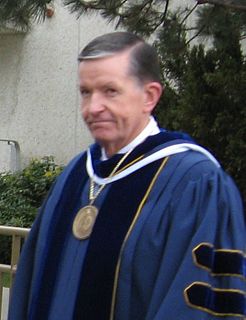A Quote by Agnes Repplier
In the stress of modern life, how little room is left for that most comfortable vanity that whispers in our ears that failures are not faults! Now we are taught from infancy that we must rise or fall upon our own merits; that vigilance wins success, and incapacity means ruin
Related Quotes
All the great masters in the world have been saying only one thing down the centuries, "Have your own mind and have your own individuality. Don't be a part of the crowd; don't be a wheel in the whole mechanism of a vast society. Be individual, on your own. Live life with your own eyes; listen to music with your own ears." But we are not doing anything with our own ears, with our own eyes, with our own minds; everything is being taught, and we are following it.
Most of all, we must never be deceived. We must never allow ourselves to think that anything in this world succeeds, fails, is given, taken, done, or undone without Allah. It is only by our connection to our Creator that we rise or fall in life, in our relationship with our world—and with all of humanity.
The world has witnessed the rise and fall of monarchy, the rise and fall of dictatorship, the rise and fall of feudalism, the rise and fall of communism, and the rise of democracy; and now we are witnessing the fall of democracy... the theme of the evolution of life continues, sweeping away with it all that does not blossom into perfection.
This is the pleasantest part of life. Oblivion throws her light coverlet over our infancy; and, soon after we are out of the cradle we forget how soundly we had been slumbering, and how delightful were our dreams. Toil and pleasure contend for us almost the instant we rise from it: and weariness follows whichever has carried us away. We stop awhile, look around us, wonder to find we have completed the circle of existence, fold our arms, and fall asleep again.
While our institutional mission and destiny are not in doubt, how we each participate and understand our individual responsibilities requires constant attention, effort, and vigilance. BYU will progress and prosper, but our individual success is not guaranteed without our own personal best efforts and worthily received blessings.
Before making peace, war is necessary, and that war must be made with our self. Our worst enemy is our self: our faults, our weaknesses, our limitations. And our mind is such a traitor! What does it? It covers our faults even from our own eyes, and points out to us the reason for all our difficulties: others! So it constantly deludes us, keeping us unaware of the real enemy, and pushes us towards those others to fight them, showing them to us as our enemies.
We are befouling and destroying our own home, we are committing a slow but accelerating race suicide and life murder - planetary biocide. Now there is a mighty theme for a mighty book but a challenge to which no modern novelist or poet has yet responded. Where is our Melville, our Milton, our Thomas Mann when we need him most?






































